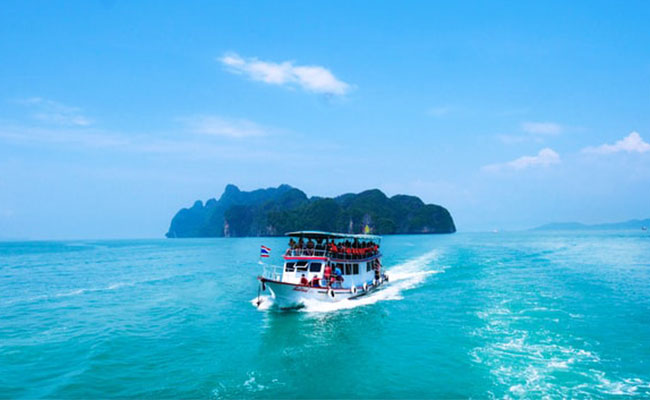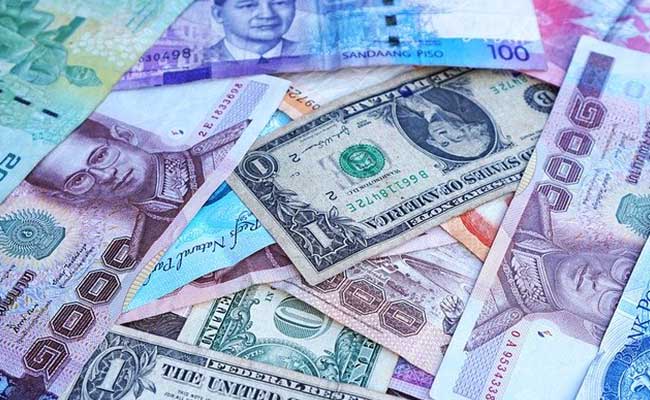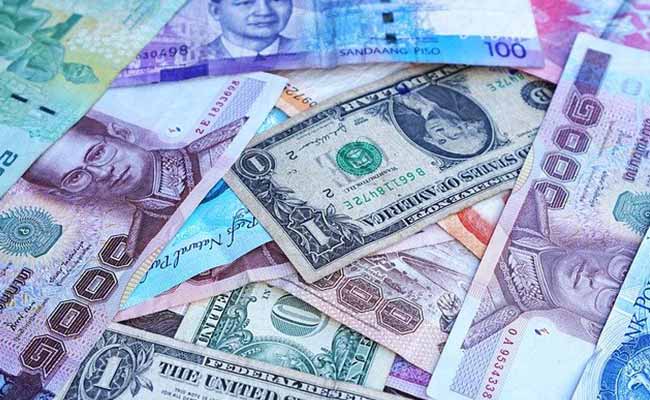Various regulations govern the transportation of cash into and out of Thailand, depending on whether you're dealing with a foreign currency or the Thai Baht.
While these regulations are clearly outlined, few travellers bother to check, and some end up falling foul of the law.
If you're planning a visit to Thailand in the near future, refer to this guide to understand how these money control regulations affect you.
——
Oh, and while I remember, don't forget to put travel insurance on your to-do list! I use SafetyWing, and so do many of my readers.
They offer affordable, global travel medical insurance, making the cover a go-to choice for tourists and long-term travellers seeking peace of mind in case of an unfortunate event.
——

The Reasons Behind Currency Control
Countries such as Thailand limit the amount of currency you can bring in primarily to regulate financial flows and prevent illicit activities. Here are some reasons why such limits are imposed:
- Prevention of Money Laundering: Limiting the amount of currency that can be brought into a country helps authorities track and monitor financial transactions. It reduces the risk of criminals laundering money obtained through illegal activities.
- Control of Terrorist Financing: Currency controls assist in preventing funds from being used to finance terrorist activities. By restricting large cash imports, governments aim to disrupt the flow of funds to terrorist organizations.
- Stability of Exchange Rates: Allowing unrestricted inflows of foreign currency can lead to volatility in exchange rates, which can adversely affect the economy. Currency limits help stabilize exchange rates by regulating the amount of foreign currency entering the country.
- Protection of Domestic Economy: Limiting cash imports protects the domestic economy from external shocks. Excessive inflows of foreign currency can distort local markets and lead to economic imbalances.
- Tax Enforcement: Currency controls aid in tax enforcement by ensuring that individuals declare their assets accurately. They help prevent tax evasion and ensure compliance with tax laws.
Bringing Money into Thailand
According to Thai customs regulations, travellers can bring up to $20,000 or its equivalent into the country without prior declaration.
Travellers carrying amounts exceeding the stipulated limit must report to customs officers upon arrival and complete a declaration form. Failure to comply constitutes a criminal offense, underscoring the importance of adhering to regulations.
You can access comprehensive information on customs regulations in Thailand by visiting the Thai Customs Board website.
Declaring Your Cash at the Border
It's important to highlight that the official declaration form mandates reporting amounts exceeding $15,000. If you're transporting funds surpassing this threshold, whether entering or exiting Thailand, it's advisable to consult with a Border Guard to verify compliance with the regulations.
You must provide supplementary details and respond to inquiries regarding the cash you're carrying, including its origin, purpose, and destination.
Penalties for Violations
Failing to declare excess cash upon entry is considered a criminal offense in Thailand and may result in confiscation, fines, or even imprisonment. Understanding what constitutes ‘cash' is crucial, as it encompasses various forms of negotiable monetary instruments beyond physical currency.
Some of these include:
- Promissory Notes: Written promises to pay a specified sum of money to a designated party at a specified date or upon demand.
- Bills of Exchange: Written orders directing one party to pay a specified sum of money to another party either immediately or at a future date.
- Bankers' Drafts: Also known as cashier's checks or banker's checks, these are checks drawn by a bank on its own funds and signed by one of its officers
- Money Orders: A payment order for a pre-specified amount of money, usually issued and payable at a post office or bank.
- Cheques: Written orders from an account holder to their bank, instructing the bank to pay a specified sum of money to a designated recipient.
- Travellers' Cheques: Pre-printed, fixed-amount cheques designed to allow the person signing them to make payments to a third party on demand.
These forms of negotiable monetary instruments are considered ‘cash' because they can easily be converted into physical currency or deposited into bank accounts, making them susceptible to misuse or illicit activities if not properly regulated. Therefore, they are subject to the same currency regulations and declarations as physical currency when crossing international borders.
Taking Money out of Thailand
Regulations for outbound currency differ based on whether you're carrying foreign currency or Thai Baht. While up to $20,000 (USD) in foreign currency is permissible, restrictions apply when transporting Thai Baht.
If departing Thailand with Thai currency, you're limited to THB 50,000, roughly equivalent to USD 1,500. However, if traveling to neighboring countries like Cambodia, Laos, Myanmar, Malaysia, Vietnam, or the Yunnan province of China, the regulations are slightly relaxed. In such instances, you're permitted to carry up to THB 2,000,000. Nonetheless, if you intend to transport more than THB 450,000 to these destinations, you must declare it to Thai Customs Authorities.
NB: the requirements for additional paperwork upon arrival at your destination may vary depending on your travel itinerary. For instance, if departing Thailand and traveling to Europe with an amount exceeding approximately €10,000, you'll likely need to complete another declaration upon reaching your European destination. However, the specific process can differ from country to country. It's essential to familiarize yourself with all relevant laws and regulations before embarking on your journey to ensure compliance.
Exchanging Currency and Avoiding Fees
Carrying excessive cash is unnecessary and cumbersome. Not only is it inconvenient, but it can also pose safety risks. While most visits to Thailand are trouble-free, lugging around a bundle of cash can make you a target for thieves, especially if you're jet-lagged from your flight or distracted by sightseeing. Opting for ATMs to withdraw money as needed during your trip can help alleviate unnecessary stress.
Furthermore, relying on cash for your expenses can lead to challenges with exchange rates upon arrival in Thailand. Often, the most convenient exchange offices, such as those at airports or hotels, offer unfavorable rates. This leaves you with a dilemma: either spend valuable holiday time searching for better rates or settle for overpriced currency exchange at a convenient location.
My recommended solution is this:
If you or a friend/partner have a Thai bank account, using Wise, you can transfer funds from your home bank account to the Thai bank account and get the same exchange rate that banks use amongst themselves.
Doing it this way will mean you always receive the best available exchange rate for any currency exchange, with just a small, upfront fee for the transfer. Once your funds are converted to Thai Baht, you can easily withdraw them from ATMs whenever needed, bypassing the fees charged for withdrawing with a foreign bank card, and avoiding the markup fee charged by exchange offices.
For expats residing in Thailand, or for frequent travelers, you can open a Wise multi-currency account. This account enables you to hold your funds in multiple currencies simultaneously, providing a comprehensive overview of your account balance. With this account, you can effortlessly move your funds between currencies whenever necessary, ensuring you always receive the best exchange rate without any hidden fees.
Key Takeaways Summary
Here is a bulleted list of all the important points we have covered in this article:
- Currency controls serve various purposes, including preventing money laundering, terrorist financing, and maintaining exchange rate stability.
- Travellers to Thailand can bring up to $20,000 or its equivalent without prior declaration, but exceeding this limit requires reporting to customs officers.
- Declarations for cash exceeding $15,000 are mandatory, emphasizing the importance of understanding regulations and seeking guidance from Border Guards if needed.
- Failure to declare excess cash is a criminal offense in Thailand and may result in severe penalties, including confiscation.
- ‘Cash' encompasses various negotiable monetary instruments, including promissory notes, bills of exchange, and travellers' cheques.
- Outbound currency restrictions differ based on foreign currency or Thai Baht, with allowances for specific bordering countries.
- Excessive cash carrying is cumbersome and risky, prompting the use of ATMs for on-demand withdrawals and avoiding unfavorable exchange rates at convenient locations.
- Having access to a Thai bank account and conducting transfers via Wise is the best way to avoid fees.
Last Updated on



Aaron Davies says
Apr 25, 2024 at 1:13 pm
TheThailandLife says
Apr 25, 2024 at 4:15 pm
Graham says
Apr 24, 2024 at 8:26 am
TheThailandLife says
Apr 24, 2024 at 5:27 pm